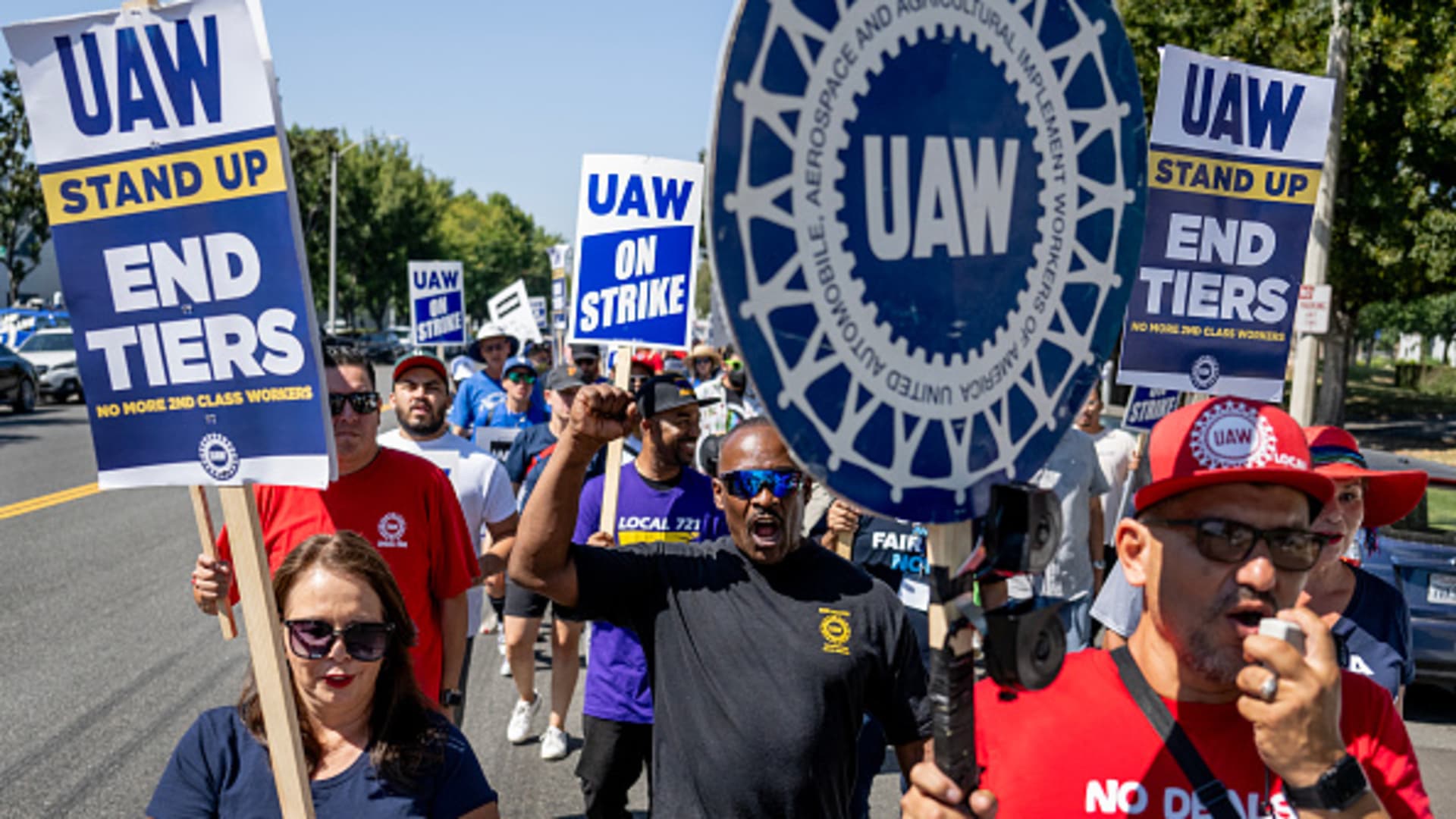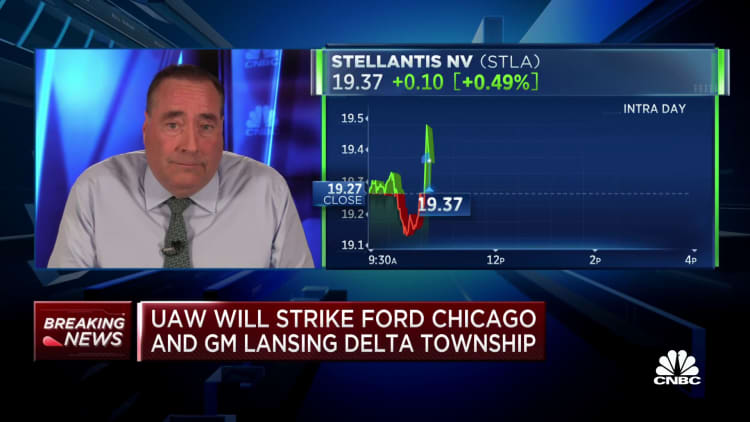

DETROIT – The United Auto Workers union will expand strikes against General Motors and Ford Motor to two U.S. assembly plants at noon ET, UAW President Shawn Fain said Friday.
The additional strikes will target Ford’s Chicago Assembly Plant in Illinois, which produces the Ford Explorer and Lincoln Aviator SUVs, and GM’s Lansing Delta Township plant in mid-Michigan that produces the Buick Enclave and Chevrolet Traverse crossovers.
The plants are important ones for the companies, however not as profitable or crucial as facilities that produce the automakers’ pickup trucks.
Fain said Chrysler parent Stellantis was spared from additional strikes because of recent progress in negotiations with that company.
“Moments before this broadcast, Stellantis made significant progress on the 2009 cost-of-living allowance, the right not to cross a picket line, as well as the right to strike over product commitments and plant closures and outsourcing moratoriums,” said Fain, who was delayed nearly 30 minutes in making the online announcement. “We are excited about this momentum at Stellantis and hope it continues.”
About 6,900 autoworkers will take part in the latest wave of work stoppages, joining roughly 18,300 workers who are currently on strike for the union. That means about 25,200 employees, or roughly 17% of UAW members covered by the expired contracts with the Detroit automakers, will be on strike as of noon.
“To restore the balance of power, we have to restore the strike,” Fain said Friday, citing several other UAW strikes aside from the Detroit automakers.
GM in a statement Friday said it had yet to receive a “comprehensive counteroffer” from union leadership to a contract proposal made last week.
“Calling more strikes is just for the headlines, not real progress. The number of people negatively impacted by these strikes is growing and includes our customers who buy and love the products we build,” Gerald Johnson, GM’s head of global manufacturing, said in the statement. “We’re here to reach an agreement so we can all get back to work, and that remains our 100% focus.”
Stellantis, in a statement, said while negotiators have made progress, “gaps remain.” The company said it is “committed to continue working through these issues in an expeditious manner to reach a fair and responsible agreement that gets everyone back to work as soon as possible.”
Ford CEO Jim Farley said mid-Friday afternoon the UAW is “holding the deal hostage over battery plants,” calling the additional strike “grossly irresponsible.” He also criticized the union for its targeted strike strategy, saying he feels the actions were “premediated” and insinuating the union was never interested in reaching a deal before a Sept. 14 deadline.
Fain fired back at Farley, saying the CEO hasn’t been present at the bargaining table and that he’s “lying about the state of negotiations.”
The additional strikes come one week after a similar strike expansion. The UAW originally initiated work stoppages on Sept. 15 at three assembly plants — one each for the Detroit automakers. Last week, the union targeted a further 38 parts and distribution locations operated by GM and Stellantis. At that time, the UAW spared Ford from expanded strikes, citing progress in those negotiations.
Members of the Writers Guild of America West (WGAW) join striking United Auto Workers (UAW) at a rally in front of the Stellantis Mopar facility on September 26, 2023 in Ontario, California.
Gina Ferazzi | Los Angeles Times | Getty Images
Fain previously said the union would increase the work stoppages, based on progress in the contract negotiations. The talks have spurred frustrations and accusations from both sides of the bargaining table.
Before the Friday announcement, GM and Stellantis in particular had grown increasingly frustrated by a lack of participation from Fain and what they said were delays in receiving counterproposals from the union, people familiar with the negotiations told CNBC.
Unlike past strikes, UAW leaders opted for targeted strikes at select plants instead of initiating national walkouts. It’s calling the work stoppages “stand-up strikes,” a nod to historic “sit-down” strikes by the UAW in the 1930s.
The strategy is in an effort to keep the automakers on edge in an effort to pit them against one another to achieve better contracts, according to private messages leaked last week involving the UAW’s communications director.
The messages, which described a strategy to cause “recurring reputations damage and operational chaos” for the companies, were heavily criticized by the automakers.
